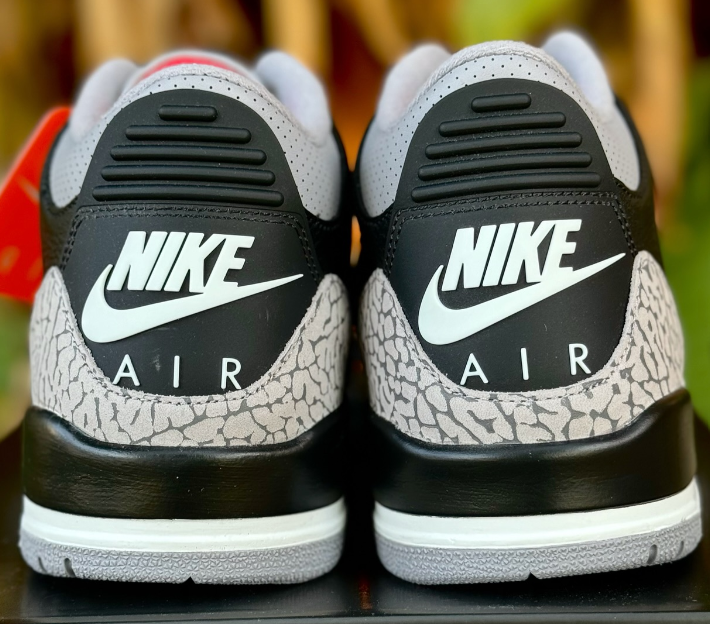Cash for clunkers came at a very, very good time to jump-start the economy," Mike DiGiovanni, sales analyst at Detroit-based General Motors Co., said at a teleconference. The so-called Car Allowance Rebate System, which provides credits of as much as $4,500 for the purchase of a new car when an older vehicle to be scrapped is handed over, ran through most of its initial $1 billion of funding within a week.
"If the cash-for-clunkers program is extended by the additional $2 billion that passes the Senate, it could boost third-quarter GDP by 0.5 percentage points," DiGiovanni said.
They say it will add half a percentage point to GDP. I think this is a great example of how the right demand side economic policies can work.
Navigation
Install the app
How to install the app on iOS
Follow along with the video below to see how to install our site as a web app on your home screen.

Note: this_feature_currently_requires_accessing_site_using_safari
More options
You are using an out of date browser. It may not display this or other websites correctly.
You should upgrade or use an alternative browser.
You should upgrade or use an alternative browser.
Cash for Clunkers Program a Success, What do you think? Vol. Team Economics
- 5,485
- 14
- Joined
- Jul 24, 2007
Cash for Clunkers Is Just a Broken Windshield: Caroline Baum
Share | Email | Print | A A A
Commentary by Caroline Baum
Aug. 5 (Bloomberg) -- Now that the U.S. government is in the auto business, with a 61 percent ownership stake in General Motors and 10 percent in Chrysler, it wants to move inventory.
So it came up with a plan, gave it a catchy name and wrapped it in a patina of environmental do-goodism.
"Cash for clunkers" was touted as a huge success, with cars tearing out of auto showrooms, the program running through its $1 billion appropriation in one week and government servers crashing in response to overwhelming demand from dealers filing for rebates. (At least it wasn't the drivers that crashed.)
Was the program to induce drivers to turn in old gas- guzzlers for a more fuel-efficient vehicle a success? That depends on how you define success.
Consumers got a "discount," automakers sold more cars and trucks last week than they would have, and all that "stimulus" -- spending begets income begets spending -- has to be good for the economy, right?
With success like that, why limit the rebates to $4,500? Why not give everyone a $10,000 or $20,000 rebate to turn in an old clunker? And why stop at the cars in the garage when you could get rid of a garage full of accumulated junk, with the government providing rebates to households for unloading what they've been meaning to get rid of for years?
A reductio ad absurdum, to be sure. Sometimes reducing a proposition to absurdity is the easiest way to expose its flaws.
The government is transferring money from -- guess who? -- we, the taxpayers, to car buyers. Those buyers would have traded in their cars anyway, albeit at a more leisurely pace, according to Jeremy Anwyl, chief executive of Edmunds.com, an auto information Web site. Knowing their cost would drop on July 24, buyers postponed sales so they could cash in on the program, he says.
Sight Unseen
Transferring money from taxpayers to car buyers is exactly that: a transfer. The money taken from taxpayers can't be used for something else.
This is the lesson of Frederic Bastiat's essay, "That Which is Seen, and That Which is Unseen." Bastiat, a 19th century French political economist, tells the story of a shopkeeper who has to hire a glazier to repair a broken window, providing work and income for him in the process. That's what is seen.
What is unseen is what the shopkeeper would have done if he didn't have to pay the glazier. He might have bought shoes for his children, providing income for the shoemaker, who in turn could buy leather to produce more shoes. The glazier's gain is the shoemaker's loss. There is no net gain, no job or income creation, from this transaction.
Broken Window Fallacy
The "broken window fallacy," as it is known, can be applied to all government spending. The $787 billion fiscal stimulus enacted in February transfers money from taxpayers to the government to allocate as it sees fit. The effect of the government's expenditures shows up as growth in gross domestic product. Auto manufacturers produce more cars to meet the juiced demand, adding to GDP. This is what's seen.
What is unseen is what would have been produced by the private sector had the government not confiscated future revenue via taxation.
An additional $2 billion to extend cash for clunkers -- the measure passed by the House of Representatives and is awaiting Senate action -- is a drop in the bucket compared with the trillions the government has spent, lent or pledged during the crisis.
Just think of all those broken windows, or windshields, as the case may be.
Cash 'n Trash
Cash for clunkers requires that trade-ins be scrapped, whether they are fully depreciated or not. How is destroying something good for the nation?
James Hamilton, professor of economics at University of California, San Diego, says cash for clunkers adopts the worst of the New Deal policies and adapts it to today's circumstances.
The Agricultural Adjustment Act of 1933 "paid farmers to slaughter livestock and plow up good crops, as if destroying useful goods could somehow make the nation wealthier," Hamilton writes on his blog. "And yet, here we are again, with the cash for clunkers program insisting that working vehicles must be junked to qualify for the subsidy."
What's more, the U.S. has effectively adopted Japanese- style industrial policy, or a government-business partnership. In the case of GM, it happens to be partnering with itself.
What about other industries that are constrained by bloated inventories? Why not offer a rebate to homeowners that trade in older, oil-heated houses for new ones using gas heat or solar panels? The government could even mandate that trade-in homes be scrapped (in this case scraped), paring inventories in the process.
If President Barack Obama and the Democratic majority in Congress think these programs are putting us on a path to wealth, they better start looking beyond the 2010 mid-term election.
Then again, what better way to demonstrate the benefits of fiscal stimulus than a parade of new, fuel-efficient vehicles cruising down a newly paved road?
(Caroline Baum, author of "Just What I Said," is a Bloomberg News columnist. The opinions expressed are her own.)
To contact the writer of this column: Caroline Baum in New York at [email protected].
Last Updated: August 4, 2009 21:00 EDT
al audi
Banned
- 29,810
- 4,562
- Joined
- Jun 18, 2009
[font=verdana, arial, geneva]HERNDON, Va., Aug 5, 2009 - Audi today affirmed an August consumer sales offer that adds a $1,000 incentive to transactions eligible for the federal government's "Cars Allowance Rebate System" reimbursement program, more commonly known as "Cars for Clunkers."[/font]
[font=verdana, arial, geneva]The $1,000 consumer incentive is valid on transactions from today to August 31 and applies to Audi models ranging from the 2009 Audi A3 to the 2009 Audi TT Roadster quattro. A table of all eligible Audi models for the CARS program and the Audi CARS Allowance incentive campaign follows. Not all 2009 Audi models are eligible for the CARS program. The federal government has not ruled on which 2010 models will be eligible under the program. As offered in July, special 60 month APR and Lease terms through Audi Financial Services are also available to complement the CARS program.[/font]
[font=verdana, arial, geneva]"The CARS reimbursement enacted by Congress is a tremendous opportunity for consumers interested in upgrading to vehicles that offer better fuel efficiency and reduced emissions," said Mark Del Rosso, Chief Operating Officer, Audi of America. " Now that some uncertainties surrounding the launch of this federal program have been cleared up the time is right to enhance the deal even further."[/font]
- 1,386
- 10
- Joined
- May 9, 2009
lmao ... this program is a waste of damn time and money ... have you even read about people trying to get their money?
- 1,580
- 12
- Joined
- Aug 18, 2008
i say it, my aunt just went and traded her beat down 1999 mazda protege and got 5500 off the trade to get her a new 2010 kia sportege off the lot wit 7 mileson odo. she only payd 280 a month and after all the cash back and no interest, her down payment, and her trade in the car in total only costs 14k.
- 7,168
- 4,008
- Joined
- Jan 5, 2008
seems like its working out for ppl
- 2,059
- 11
- Joined
- Aug 5, 2008
My car (91' Oldsmobile Cutlass Supreme) wasn't eligible by 2 MPG.
[SaltyRant]I think it's kinda BS how some people went for the minimum of 4MPG more than their last car, when theres some people, including myself, who werelooking to get a car that is 12+MPG over the car they have.[/SaltyRant]
I know for a fact my car doesn't get no 20MPG combined

[SaltyRant]I think it's kinda BS how some people went for the minimum of 4MPG more than their last car, when theres some people, including myself, who werelooking to get a car that is 12+MPG over the car they have.[/SaltyRant]
I know for a fact my car doesn't get no 20MPG combined
- 5,951
- 293
- Joined
- Aug 23, 2008
Anyone can cut and paste articles. How about opinions people?
- 2,877
- 128
- Joined
- Oct 31, 2008
A lot of people have SUVs but they are not considered "clunkers" so they cant trade them. Its a good idea, but has too many stipulations. Plus whydoes it have to be on a 2009?
- 5,485
- 14
- Joined
- Jul 24, 2007
Originally Posted by marath0n
Anyone can cut and paste articles. How about opinions people?
I'm of as the same opinion as the article and the author expressed that opinion better than I could.
So what's the problem with posting an opinion piece?
Posts on NT should be used as evidence when trying to reform the failed US education system.

al audi
Banned
- 29,810
- 4,562
- Joined
- Jun 18, 2009
my opinion is

[table][tr][td]Current Eligible Audi Models[/td] [/tr][tr][td]Make[/td] [td]Model[/td] [td]Model Year[/td] [/tr][tr][td]Audi[/td] [td]A3 2.0T[/td] [td]2008[/td] [/tr][tr][td]Audi[/td] [td]A4 2.0T[/td] [td]2008[/td] [/tr][tr][td]Audi[/td] [td]A4 Avant quattro 2.0T[/td] [td]2008[/td] [/tr][tr][td]Audi[/td] [td]A4 Cabriolet 2.0T[/td] [td]2008[/td] [/tr][tr][td]Audi[/td] [td]TT Coupe[/td] [td]2008[/td] [/tr][tr][td]Audi[/td] [td]TT Roadster[/td] [td]2008[/td] [/tr][tr][td]Audi[/td] [td]A3 2.0T[/td] [td]2009[/td] [/tr][tr][td]Audi[/td] [td]A3 quattro 2.0T[/td] [td]2009[/td] [/tr][tr][td]Audi[/td] [td]A4 2.0T[/td] [td]2009[/td] [/tr][tr][td]Audi[/td] [td]A4 quattro 2.0T[/td] [td]2009[/td] [/tr][tr][td]Audi[/td] [td]A4 Avant quattro 2.0T[/td] [td]2009[/td] [/tr][tr][td]Audi[/td] [td]A4 Cabriolet[/td] [td]2009[/td] [/tr][tr][td]Audi[/td] [td]A4 Cabriolet quattro 2.0T[/td] [td]2009[/td] [/tr][tr][td]Audi[/td] [td]TT Coupe 2.0T[/td] [td]2009[/td] [/tr][tr][td]Audi[/td] [td]TT Coupe quattro 2.0T[/td] [td]2009[/td] [/tr][tr][td]Audi[/td] [td]TT Roadster 2.0T[/td] [td]2009[/td] [/tr][tr][td]Audi[/td] [td]TT Roadster quattro 2.0T[/td] [td]2009[/td] [/tr][tr][td]Audi[/td] [td]Audi Q5[/td] [td]2009[/td] [/tr][/table]

[table][tr][td]Current Eligible Audi Models[/td] [/tr][tr][td]Make[/td] [td]Model[/td] [td]Model Year[/td] [/tr][tr][td]Audi[/td] [td]A3 2.0T[/td] [td]2008[/td] [/tr][tr][td]Audi[/td] [td]A4 2.0T[/td] [td]2008[/td] [/tr][tr][td]Audi[/td] [td]A4 Avant quattro 2.0T[/td] [td]2008[/td] [/tr][tr][td]Audi[/td] [td]A4 Cabriolet 2.0T[/td] [td]2008[/td] [/tr][tr][td]Audi[/td] [td]TT Coupe[/td] [td]2008[/td] [/tr][tr][td]Audi[/td] [td]TT Roadster[/td] [td]2008[/td] [/tr][tr][td]Audi[/td] [td]A3 2.0T[/td] [td]2009[/td] [/tr][tr][td]Audi[/td] [td]A3 quattro 2.0T[/td] [td]2009[/td] [/tr][tr][td]Audi[/td] [td]A4 2.0T[/td] [td]2009[/td] [/tr][tr][td]Audi[/td] [td]A4 quattro 2.0T[/td] [td]2009[/td] [/tr][tr][td]Audi[/td] [td]A4 Avant quattro 2.0T[/td] [td]2009[/td] [/tr][tr][td]Audi[/td] [td]A4 Cabriolet[/td] [td]2009[/td] [/tr][tr][td]Audi[/td] [td]A4 Cabriolet quattro 2.0T[/td] [td]2009[/td] [/tr][tr][td]Audi[/td] [td]TT Coupe 2.0T[/td] [td]2009[/td] [/tr][tr][td]Audi[/td] [td]TT Coupe quattro 2.0T[/td] [td]2009[/td] [/tr][tr][td]Audi[/td] [td]TT Roadster 2.0T[/td] [td]2009[/td] [/tr][tr][td]Audi[/td] [td]TT Roadster quattro 2.0T[/td] [td]2009[/td] [/tr][tr][td]Audi[/td] [td]Audi Q5[/td] [td]2009[/td] [/tr][/table]
- 10,490
- 229
- Joined
- May 2, 2001
idiotic program..
Articles like the one wawaweewa posted fail to take into account the big picture.
$3 Billion is only $21 for each tax payer. Then you need to factor in that the government is taxing all aspects of production and the increase in sales taxrevenue. So while the inital cost out the door may be $3 billion, the government will recover most likely $1 billion at the minimum through all the tax revenueand the increase in economic growth.
Under $3 billion for 0.5% increase in GDP. That's a pretty good program. Imagine if we saw that kind of return in any of the other stimulus measures.
$3 Billion is only $21 for each tax payer. Then you need to factor in that the government is taxing all aspects of production and the increase in sales taxrevenue. So while the inital cost out the door may be $3 billion, the government will recover most likely $1 billion at the minimum through all the tax revenueand the increase in economic growth.
Under $3 billion for 0.5% increase in GDP. That's a pretty good program. Imagine if we saw that kind of return in any of the other stimulus measures.
al audi
Banned
- 29,810
- 4,562
- Joined
- Jun 18, 2009
how so dirty?Originally Posted by Dirtylicious
idiotic program..
elaborate?
i think the number one car in the program is the ford focus, people are getting a new reliable vehicle with good gas mileage.
- 1,386
- 10
- Joined
- May 9, 2009
Originally Posted by cguy610
Articles like the one wawaweewa posted fail to take into account the big picture.
$3 Billion is only $21 for each tax payer. Then you need to factor in that the government is taxing all aspects of production and the increase in sales tax revenue. So while the inital cost out the door may be $3 billion, the government will recover most likely $1 billion at the minimum through all the tax revenue and the increase in economic growth.
Under $3 billion for 0.5% increase in GDP. That's a pretty good program. Imagine if we saw that kind of return in any of the other stimulus measures.
ummmm ... sooooo ... i want 100 billion dollars ... come on man thats only like $60 per person give or take a few bucks, whats wrong with that? just cough itup ...
THIS DOES NOTHING TO SUSTAIN GROWTH IN OUR ECONOMY AND WE HAVE TO PAY FOR IT ... IT IS YET ANOTHER WAY FOR THIS ADMINISTRATION TO GIVE AWAY PEOPLES HARD EARNEDMONEY AS THEY SEE FIT ...
- 2,514
- 10
- Joined
- May 16, 2009
My mom just exchanged her 1994 Lexus ES 300
 for a brand new 2009 IS 250sedan
for a brand new 2009 IS 250sedan
 ...I think the program is pretty reliable for people to get rid oftheir old cars and buy a new one.
...I think the program is pretty reliable for people to get rid oftheir old cars and buy a new one.


al audi
Banned
- 29,810
- 4,562
- Joined
- Jun 18, 2009
Originally Posted by sneakerfan93
My mom just exchanged her 1994 Lexus ES 300for a brand new 2009 IS 250 sedan ...I think the program is pretty reliable for people to get rid of their old cars and buy a new one.
...I think the program is pretty reliable for people to get rid of their old cars and buy a new one.

word ya mommy stylin right now
- 5,485
- 14
- Joined
- Jul 24, 2007
There are othr externalities that the article doesn't touch on.Originally Posted by cguy610
Articles like the one wawaweewa posted fail to take into account the big picture.
$3 Billion is only $21 for each tax payer. Then you need to factor in that the government is taxing all aspects of production and the increase in sales tax revenue. So while the inital cost out the door may be $3 billion, the government will recover most likely $1 billion at the minimum through all the tax revenue and the increase in economic growth.
Under $3 billion for 0.5% increase in GDP. That's a pretty good program. Imagine if we saw that kind of return in any of the other stimulus measures.
For example. The facet of the program that junks all cars turned in. Including working cars.
That means that there will be a shortage of working used cars in the near future which will inevitably drive up the price of all used cars.
Who buys cheap used cars? Wealthy people who can afford them or poorer people who need cheap forms of transportation? The Feds just decreased the quality ofliving for many individuals who are planning on buying a used car in the near future.
- 5,310
- 22
- Joined
- May 28, 2005
Originally Posted by Al Audi
how so dirty?Originally Posted by Dirtylicious
idiotic program..
elaborate?

- 7,168
- 4,008
- Joined
- Jan 5, 2008
Originally Posted by Al Audi
how so dirty?Originally Posted by Dirtylicious
idiotic program..
elaborate?
i think the number one car in the program is the ford focus, people are getting a new reliable vehicle with good gas mileage.
???? why is it idiotic ???
- 7,926
- 6,336
- Joined
- Jan 19, 2005
Yes the program boosts car sales which is keeping dealerships open, and car production moving...but my concern is the economy as a whole not just the autoindustry. Let's say that these new car buyers that have just stepped into years of debt lose their jobs. We will be in the same situation we are in nowwith lenders unable to collect payment on the defaulted loans.
- 10,490
- 229
- Joined
- May 2, 2001
[h2]Cash-for-Clunkers' Effect on Air Pollution? Barely a Blip, Climate Experts Say[/h2]
Compared to overall carbon-dioxide emissions in the U.S., the pollution savings from the absurdly popular and taxpayer-funded cash-for-clunkers program do not noticeably move the fuel gauge, climate experts told The Associated Press in an article published today.
----------
The horror, the horror: Despite all of the hoopla, C4C does little to effect climate change.
----------
The experts told the news service that the program - which was conceived to stimulate the economy, jump-start the auto industry and a curb the amount of automotive greenhouse gases entering the Earth's atmosphere - is not a good way to attack climate change.
"As a carbon-dioxide policy, this is a terribly wasteful thing to do," said Henry Jacoby, a professor of management and co-director of the Joint Program on the Science and Policy of Global Change at MIT. "The amount of carbon you are saving per federal expenditure is very, very small."
Officials expect a quarter-million gas guzzlers will be junked under the original $1 billion setaside by Congress - money that is now all but exhausted.
Calculations by The AP, using Department of Transportation figures, show that replacing those fuel hogs will reduce carbon-dioxide emissions by just under 700,000 tons a year. While that may sound impressive, it's nothing compared to what the U.S. spewed last year: nearly 6.4 billion tons (and that was down from previous years).
That means on average, every hour, America emits 728,000 tons of carbon dioxide. The total savings per year from cash for clunkers translates to about 57 minutes of America's output of the chief greenhouse gas.
Likewise, America will be using nearly 72 million fewer gallons of gasoline a year because of the program, based on the first quarter-million vehicles replaced. U.S. drivers go through that amount of gas every 4 1/2 hours, according to the Department of Energy.
For individuals, the program scores big. Vehicle owners who trade in an older, gas-guzzling truck or car for a newer fuel-efficient vehicle can get $3,500 to $4,500 in rebates. On average each year, they will save 287 gallons of gas, more than $700 in fuel costs and close to 3 tons in carbon dioxide pollution.
The problem is, there aren't enough of these individuals to dent the national or global energy and environmental problems.
"There's 260 million vehicles on the road and you're talking a quarter-million vehicles. It's not even close. It's just a drop in the bucket," said Bruce Belzowski, a scientist at the University of Michigan's Transportation Research Institute.
The House has passed a bill at President Obama's request to pump an additional $2 billion into the program. If the Senate follows suit, the potential effect on pollution and energy would triple. But experts say that it is still not much compared to the overall problem.
And some energy experts say the country is overpaying for the pollution reductions, mostly because cash for clunkers is more about stimulating the economy than cutting pollution.
Paying up to $4,500 per clunker means the government is spending more than $160 for every ton of carbon dioxide removed over 10 years, said MIT's Jacoby, co-author of the book "Transportation in a Climate-Constrained World."
That's five to 10 times more than the estimated per-ton cost of carbon dioxide for power plants in the cap-and-trade system passed earlier this year by the House.
Michael Gerrard, director of the Center for Climate Change Law at Columbia University, who examined the clunkers program in an academic journal, said there are far better ways to cut energy use and greenhouse gases.
"It's not that it's a bad idea; just don't sell it as a cost-effective energy savings method," he said. "From an economic standpoint it seems to be a roaring success. From an environment and energy perspective, it's not where you would put your first dollar."
- 7,168
- 4,008
- Joined
- Jan 5, 2008
"From an economic standpoint it seems to be a roaring success. From an environment and energy perspective, it's not where you would put your firstdollar.".....
I'd like to think the majority is more concerned with the economic standpoint or am i wrong????
I'd like to think the majority is more concerned with the economic standpoint or am i wrong????
- 10,490
- 229
- Joined
- May 2, 2001
and it boils down to...why should the American people subsidize car companies that have floundered b/c they squandered their earnings and profits when thingswere good?
- 1,509
- 138
- Joined
- May 8, 2007
short term fixing.
no substantial environmental help.
giving money back to the idiots who messed up in the first place.
completely scrapping the old cars and making nothing off of their remaining value.
only helping people buy new cars that they may not be able to pay for anyhow.
not a good program IMO.
i dont regret my vote Pres. Obama, but Id like to see some better programs.
no substantial environmental help.
giving money back to the idiots who messed up in the first place.
completely scrapping the old cars and making nothing off of their remaining value.
only helping people buy new cars that they may not be able to pay for anyhow.
not a good program IMO.
i dont regret my vote Pres. Obama, but Id like to see some better programs.




